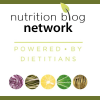What are supplements?
A dietary supplement is a product that provides additional nutrients to someone who are not obtaining nutrients naturally from their diet. Examples include vitamin, mineral and fibre supplements.
Who requires supplements?
- Pregnant or Breastfeeding women are recommended to take a folic acid supplement of 0.5 mg daily. It must be taken at least 1 month before conceiving and during the first 3 months of pregnancy.
- Women with excessive bleeding during menstruation may also require an iron supplement.
- People with malabsorption disorders such as celiac disease or specific food allergies may also need a supplement.
- People who follow certain diets such as the vegan diet where one avoids all animal products may have a Vitamin B12, iron, zinc or calcium deficiency and hence may need to take a supplement.
- Older adults may need a multi-vitamin supplement if a poor diet is consumed or if they are unable to tolerate certain foods. Examples of nutrients they might be deficient include folate, vitamin B12 and vitamin D.
- Individuals recovering from surgery may require a specific supplement that can aid in the recovery process.
Replacement for a balanced diet?
Taking supplements is not an alternative option to balanced diet and it cannot fix poor eating habits. In fact, research suggests that since supplements work in isolation as opposed to a meal which is a combination of foods, it may not be as beneficial as obtaining nutrients from a variety of foods such as fruits, vegetables, wholegrain breads and cereals, lean meat and low fat dairy products.
Do you need a supplement?
One should not self prescribe supplements. Sometimes people feel that their vitamin deficiency might be the reason for feeling stress and this may not be true. Supplements are not meant to diagnose health conditions. It is best to get advice from health care providers such as a doctor or a dietitian before taking a supplement. The doctor would indicate if the level of a particular nutrient is low as per your blood tests.
Some nutrients are not easily available through diet, such as Vitamin D. Also, it is not always possible to obtain sufficient amounts of nutrients through exposure to the sunlight. This is especially true for people who are housebound, living in aged care homes or people who wear completely covered clothing due to religious reasons.
Supplementation toxicity
More than required supplement intake can sometimes cause adverse effects. For example, increased fish oil intake may cause blood clotting and excess iron can lead to gastrointestinal distress.
Contact us for results focused nutritional advice
This article was written by our dietitian and nutritionist Juhi Bhambhaney. If you have questions regarding health and nutrition, make an appointment with one of our dietitians. We‘ll provide you with a simple and effective routine targeted to your concerns. Contact us today!
The post Dietary Supplements appeared first on ENT Wellbeing Sydney.










